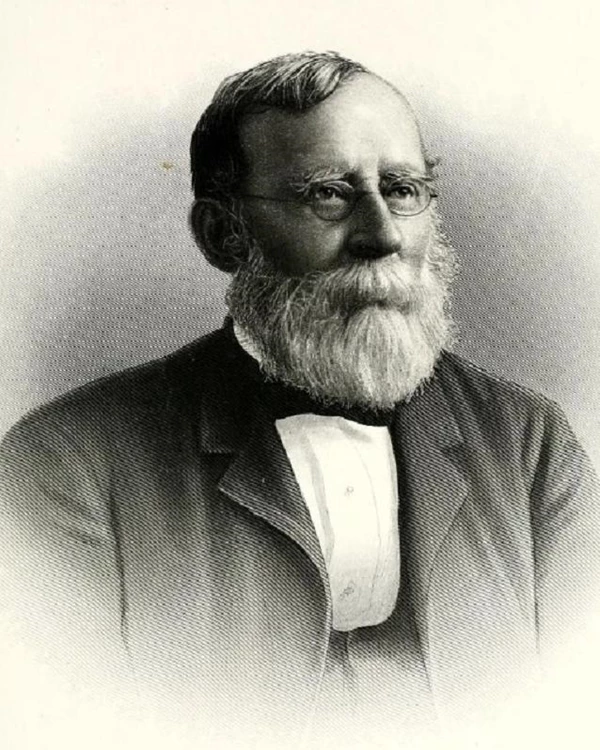Last updated: January 22, 2024
Person
Thomas T. Bouve

"History of the town of Hingham, Massachusetts," by Thomas Tracy Bouve, 1893.
Boston businessman and scientist Thomas Tracy Bouve served on the Boston Vigilance Committee, an organization dedicated to assisting those escaping slavery on the Underground Railroad.1
Born in 1815, Thomas Tracy Bouve grew up and attended school in Boston. In his mid-twenties, he co-established Curtis, Bouve and Co., a commission iron house. Bouve ran this Boston-based iron house for the next thirty years. He also dedicated much of his time to scientific pursuits and held several leadership positions in the Boston Society of Natural History, the predecessor to today's Museum of Science.2
According to one account, Bouve "always felt a strong interest in public affairs, although his tastes never led him to take an active part in political action." He never held political office yet involved himself in numerous political and reform organizations. Bouve supported the Free Soil and later Republican party, the Boston Young Men's Benevolent Society, and the Temporary Home for the Destitute.3
Bouve also participated in the abolitionist movement, most notably in two of Boston's vigilance committees. Following the forced return of a freedom seeker named George in 1846, Bostonians formed the second iteration of the vigilance committee "to secure the protection of the laws to all persons who may hereafter be in danger of abduction from this Commonwealth." Appointed to this committee, Bouve joined with nearly 40 other Bostonians with the mission "to baffle all future efforts of slave hunters on the soil of Massachusetts, and protect the fugitive..."4
Following the passage of the 1850 Fugitive Slave Law, Bouve joined with more than 200 others to form the third and final vigilance committee. His name is among those listed in the public invitation calling for a public meeting at Faneuil Hall "to consider the condition of the Fugitive Slaves and other colored persons of this city, under the new Fugitive Slave Law."5
Bouve later helped raise funds for the Free Soil settlers in the Kansas territory who hoped to establish a free state there. His funds helped provide these settlers with supplies and arms "to enable them to defend themselves from the murderous attacks of the slave power then attempting to establish slavery upon free soil."6
Bouve's abolitionist views also influenced his perspective of the Civil War. According to one account, he "strongly felt" that it should become "a war of emancipation."7 He proudly supported his eldest son who served in the war.8
Bouve died in 1896, survived by his widow, Emily, and their five children.8
Footnotes
- Bouve lived at 120 Harrison Avenue in Boston when he joined the Vigilance Committee in 1850. The Directory of the city of Boston, 1850-1851 (Boston: 1851), Boston Athenaeum, 94; "Members of the Committee of Vigilance," broadside printed by John Wilson, 1850, Massachusetts Historical Society.
- "Fifty Golden Years," Boston Globe, October 18, 1889.
- "Fifty Golden Years," Boston Globe, October 18, 1889; Boston Evening Transcript, November 1, 1849; Boston Evening Transcript, January 16, 1837; Boston Evening Transcript, December 28, 1869.
- Boston Recorder, October 1, 1846.
- The Liberator, October 18, 1850.
- "Fifty Golden Years," Boston Globe, October 18, 1889.
- "Fifty Golden Years," Boston Globe, October 18, 1889.
- W. O. Crosby, “Thomas Tracy Bouvé,” Proceedings of the American Academy of Arts and Sciences, Vol. 32, No. 17 (Jul.,1897), pp. 340-344, accessed June 2022, https://www.jstor.org/stable/20020724.
